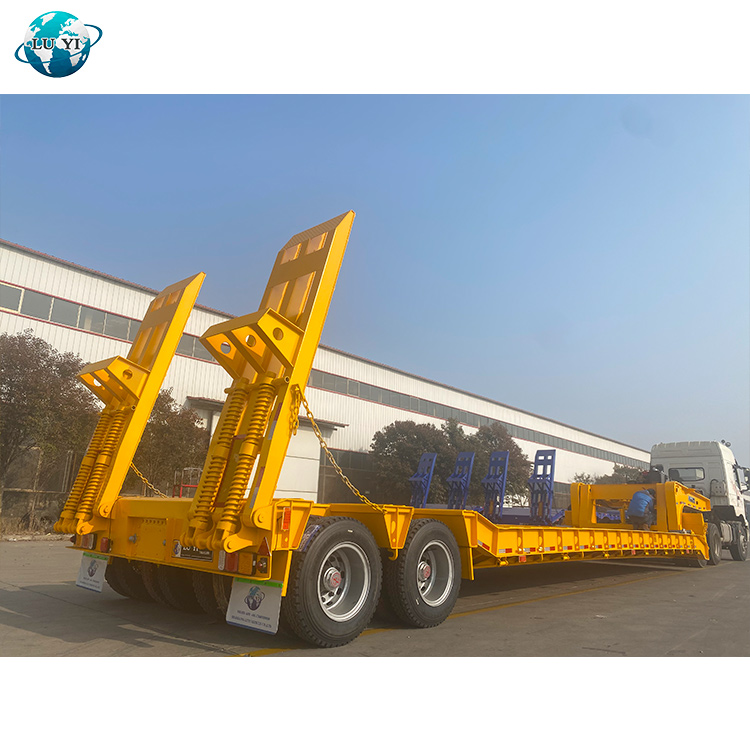In the realm of transportation and logistics, specialized equipment plays a pivotal role in moving heavy and oversized loads. The low bed trailer, a critical component of heavy haulage, has emerged as a versatile solution for transporting tall and heavy machinery, equipment, and other substantial cargo. This article explores the features, benefits, and applications of the low bed trailer, shedding light on its significance in modern transportation.
Understanding the Low Bed Trailer:
A low bed trailer, also known as a lowboy or low loader, is a specialized type of semi-trailer designed to transport heavy and oversized loads with heights that exceed standard legal limits. The distinctive feature of a low bed trailer is its extremely low deck height, achieved by situating the trailer's bed close to the ground. This design enables the transport of tall and heavy cargo while maintaining stability, safety, and compliance with transportation regulations.
Key Features and Components:
Low Deck Height: The defining characteristic of a low bed trailer is its lowered deck, which facilitates the transportation of tall equipment that wouldn't fit under normal-height trailers.
Ramps or Hydraulic Lift: Low bed trailers often feature ramps or hydraulic lifting mechanisms at the rear or front, allowing machinery and equipment to be driven onto the trailer or lifted onto it.
Multiple Axles: To distribute the weight of heavy loads and ensure stability, low bed trailers typically have multiple axles. Axle configurations vary based on the load capacity and regulatory requirements.
Extendable Bed: Some low bed trailers have extendable beds that can be adjusted to accommodate longer cargo while maintaining a low profile during transit.

Tie-Down Points: Securement points and tie-downs are strategically placed to secure the cargo and prevent shifting during transportation.
Benefits and Applications:
Versatility: Low bed trailers are adaptable to a wide range of heavy cargo, including construction machinery, industrial equipment, generators, transformers, and even military vehicles.
Height Clearance: Tall equipment that cannot be transported on standard trailers due to height restrictions can be efficiently transported using low bed trailers.
Stability: The low deck height contributes to a lower center of gravity, enhancing stability and minimizing the risk of tipping during transportation.
Compliance: Low bed trailers are designed to adhere to transportation regulations, ensuring safe and legal movement of oversized loads on highways.
Safety: The specialized design of low bed trailers, including ramps and securement features, ensures that cargo is loaded, transported, and unloaded safely.
Efficiency: By providing a reliable solution for heavy haulage, Removable low bed trailers reduce the need for disassembling equipment before transportation, saving time and effort.
Challenges and Considerations:
While low bed trailers offer numerous benefits, there are considerations to keep in mind, such as route planning, ensuring proper weight distribution, obtaining permits for oversized loads, and adhering to height and width regulations.
Conclusion:
In the world of heavy haulage, the low bed trailer stands as a remarkable innovation that enables the safe and efficient transportation of tall and heavy cargo. Its specialized design, featuring a low deck height and multiple axles, addresses the challenges associated with oversized loads, offering versatility, stability, and compliance with transportation regulations. As industries continue to rely on heavy machinery and equipment, the Luyi low bed trailer remains an essential tool in the arsenal of modern logistics, ensuring that the wheels of industry keep turning smoothly.
Previous: Base Camp 3B - Camper Trailer
Next: None.
Copyright:@2020-2021
Comments Please sign in or sign up to post.
0
0 of 500 characters used